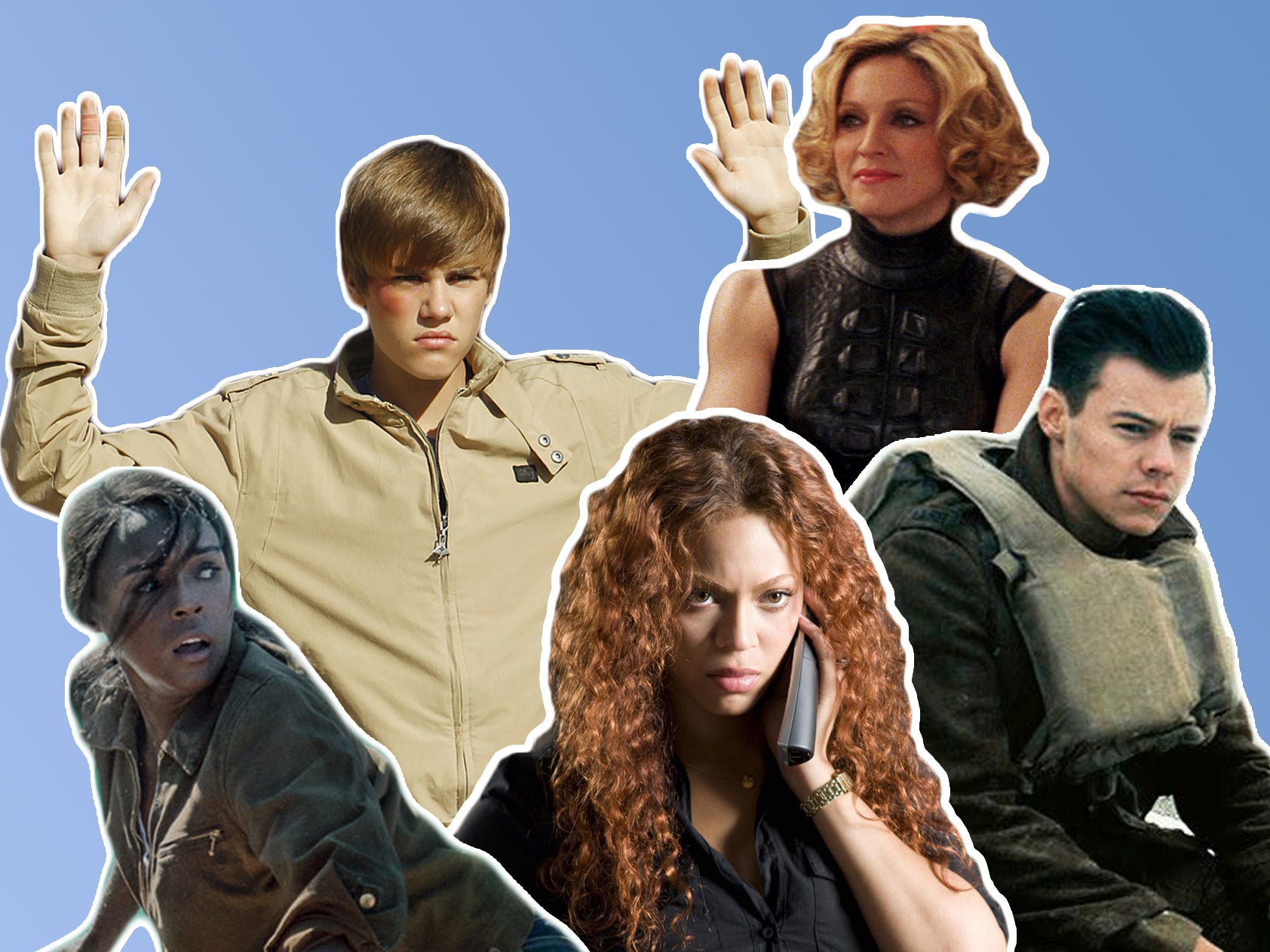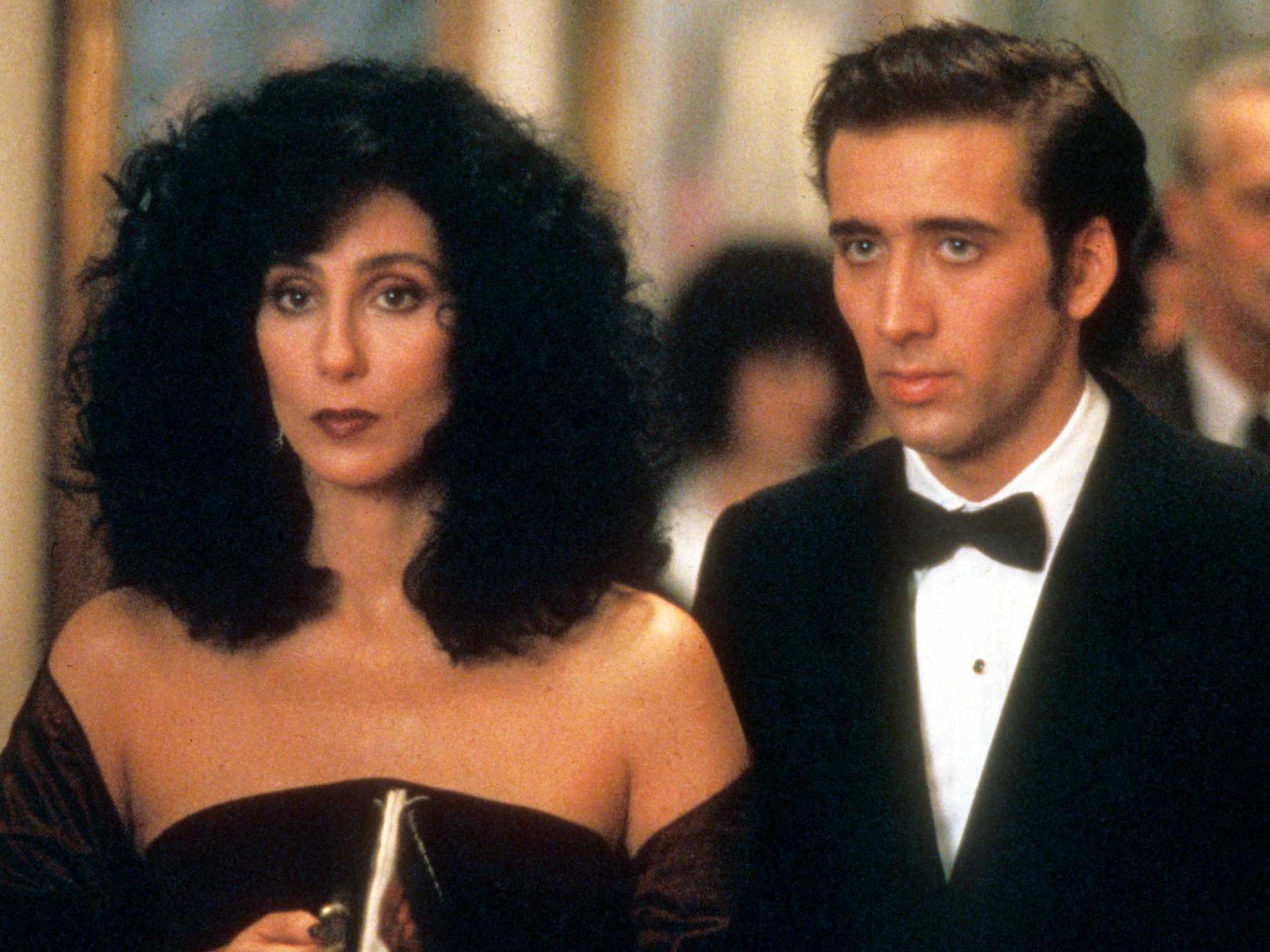Why is it hard to take pop stars seriously as actors?
As Janelle Monae makes the leap into television with Amazon’s ‘Homecoming’, Adam White explores why it’s so rare to find pop stars who can also act


Your support helps us to tell the story
From reproductive rights to climate change to Big Tech, The Independent is on the ground when the story is developing. Whether it's investigating the financials of Elon Musk's pro-Trump PAC or producing our latest documentary, 'The A Word', which shines a light on the American women fighting for reproductive rights, we know how important it is to parse out the facts from the messaging.
At such a critical moment in US history, we need reporters on the ground. Your donation allows us to keep sending journalists to speak to both sides of the story.
The Independent is trusted by Americans across the entire political spectrum. And unlike many other quality news outlets, we choose not to lock Americans out of our reporting and analysis with paywalls. We believe quality journalism should be available to everyone, paid for by those who can afford it.
Your support makes all the difference.In 2017, Harry Styles went to war. But no matter how hard he tried – or how impressive the special effects were surrounding him – Styles was an X Factor finalist at every point in Christopher Nolan’s Dunkirk. Playing a Second World War soldier, he was brooding, suspicious and heroic – and always irrefutably Harry Styles.
For as long as there have been pop stars, there have been pop stars who have secretly wanted to act. Yet only a few have pulled it off. It’s a fascinating paradox: brilliant pop star, terrible actor. Madonna is its greatest example – a star who easily moves between guises and emotional arcs in music videos, but who, on the big screen, is as stiff as a board. Beyoncé has never particularly excelled in movies, either. Even in 2006’s Dreamgirls, widely considered her strongest performance, the Grammy Award-winner seems to be overthinking every action and line of dialogue.
One person who has successfully navigated both worlds is Janelle Monae. A Prince-like funk enigma, she has spent as much of the past four years on movie sets as she has in the recording studio, with critics won over by her nuanced performances in Moonlight (2016) and Harriet (2019). This week she makes her TV debut, replacing Julia Roberts as the star of Amazon’s conspiracy thriller series Homecoming. That no one has considered her casting at all strange is a testament to the ease with which Monae has made the transition back and forth.
But why is it that for every Monae, there’s a Justin Bieber unconvincingly being shot to death in an episode of CSI? And an over-enthusiastic Geri Halliwell running into Kim Cattrall in the street on Sex and the City. And Jessica Simpson doing anything in any one of her movies. We often find pop stars jarring when they’re cast as other people; their presence in acted entertainment is distracting. We struggle to align big, pop star fame with smaller characters. It’s like viewing an ocean landscape through a tiny viewfinder. Actors who act full time can be just as famous as a Britney or a 50 Cent, but by nature of their profession we understand that they are meant to embody other people. Pop stars are pop stars. They are all-encompassing, world-renowned beings who fill up stadiums based on their personality alone.
Sometimes, it is less about the person than the film they’ve been cast in, though. Mariah Carey isn’t exactly convincing as a human being, let alone a thinly veiled version of herself, in the maligned Glitter (2001), but is brilliantly understated as a downbeat social worker in Precious (2009). Lady Gaga was horrendously flat as a 100-year-old vampire queen in American Horror Story, but natural and moving in her Oscar-nominated turn in A Star Is Born (2018). Justin Timberlake is a vision of mad swagger in The Social Network (2010), but veers into caricature in lesser movies. In truth, it tends to be the reverse – when a pop star is somewhat a caricature already – that usually results in a more successful acting career.

One possible reason Monae has never struggled as an actor is that she’s using the same tools in both fields. As a pop star, Monae is all about character and narrative. She creates fictional mythologies in her music, along with complimentary alter egos and alternate universes. Her first album was told from the perspective of an android named Cindi Mayweather. Her last record, 2018’s Dirty Computer, was released alongside a short film set in a dystopian metropolis of the future, with Monae starring as a fictional woman known as Jane 57821. Only in her non-musical work does Monae present herself as explicitly human – playing the compassionate girlfriend to Mahershala Ali in Moonlight, or the real-life aerospace engineer Mary Jackson in Hidden Figures (2016).
As an actor, Monae seems to be following in the footsteps of David Bowie. His adoption of musical personas like Ziggy Stardust came in useful in his acting work, with Bowie proving believable as an otherworldly alien in The Man Who Fell to Earth (1976), and as a goblin king in Labyrinth (1986). There’s also Björk, a deserved Golden Globe nominee for Dancer in the Dark (2000), and Cher, arguably the greatest ever pop star turned actor. A woman who has always been a chameleon in music – part showgirl, part hologram, part extra-terrestrial – Cher has never not been believable as characters on screen. In films as diverse as Silkwood (1983), Mask (1985) and Moonstruck (1987), the latter of which won her an Oscar, she has swung from dowdy to glamorous, rich to poor, introverted to extroverted.
While there are always exceptions to the rule, the best pop stars turned actors tend to be abnormal already – heightened and experimental beings we recognise as outrageous and different to us. When a pop star is admired for their apparent normality, or rise to fame on talent shows that dilute individuality, they often struggle. A normal pop star playing someone equally normal? We’d never believe it.
Join our commenting forum
Join thought-provoking conversations, follow other Independent readers and see their replies
0Comments